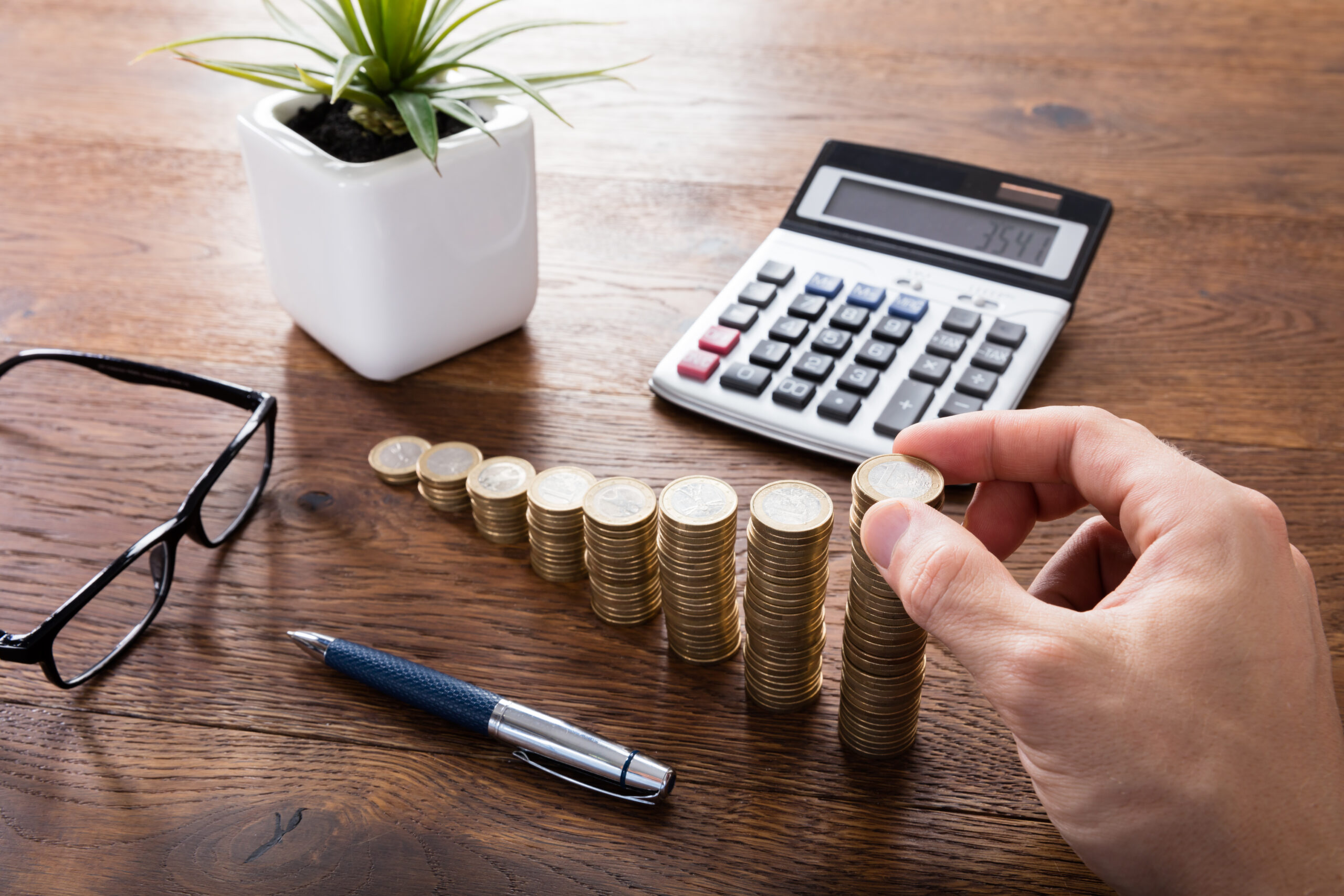How to Register as Self-Employed: Everything to Know

Looking to register as self-employed? If you’ve never moved away from traditional employment before, you’ll probably feel nervous to begin.
Perhaps there are certain things, like managing your own time and only taking on the jobs you enjoy, that you’re looking forward to. But other unavoidable responsibilities come with working for yourself – such as registering as self-employed and paying your taxes.
Luckily for you, being the owner of your own sole trading business requires minimal financial admin compared to other business models. You’ll simply need to get used to the fact that you will now be responsible for paying your own taxes rather than having them taken out of your monthly wages automatically.
But before you overthink taxes, you need to know how to register as self-employed. This article will walk you through the simple process.
How to Set Yourself Up as Self-Employed
There are only a few steps to registering as self-employed in the UK. Follow the guide below to get started:

Step 1: Check If Your Work Counts as Self-Employment
You might assume that you need to register as self-employed, but it’s wise to check before taking official actions. Use the HMRC Employment Status Indicator to check that you should be classed as self-employed for tax purposes.

Step 2: Register For an Online Account
Visit the Gov.UK portal to register as self-employed with HMRC. Simply enter your details to create an account, and make a note of your Government Gateway id and password. You must register by October 2 of your second tax year to avoid fines.

Step 3: Receive your UTR
Once your account is processed, HMRC will send a letter containing your Unique Taxpayer Reference (UTR) number. This should arrive within ten days. Make sure you keep hold of your UTR, as you’ll need it to file your tax return.

Step 4: Receive your Activation Code
You’ll receive another letter from HMRC containing an activation code for your account. Use this code to log into your account for the first time. You won’t need to save this code for every time you log in.
And that’s the full process. As soon as you’ve created your Gov.uk account, you’ll be set up to pay your tax and National Insurance as a self-employed individual. You may also need to register for VAT if your turnover exceeds £85,000, but it’s unlikely that you’ll need to do this in your business’s early days.
Is Sole Trader the Same as Self-Employed?
Yes – being self-employed is just another name for being a sole trader. As a sole trader, you work alone and employ yourself. You and your business are legally considered one entity. You get to keep all your business’s profits after tax and National Insurance deductions.
There are other means of working for yourself aside from self-employment. You may choose to register as a limited company or a partnership instead, depending on your business setup.
Registering a limited company is the most popular alternative to registering as self-employed. However, owning a registered limited company comes with even greater responsibility. Certain information – such as your business name, address, and some financial details – will be publicly available at Companies House.
You can read more about the differences between a limited company and a sole trader in this article. If you’re unsure whether your business model is best suited to a limited company or self-employed trading status, speak to a professional.
Can you be Self-Employed Without Registering?
You can be self-employed without registering as self-employed, but you must legally register with HMRC if you earn more than £1,000 per year. So, yes, you could technically work as a self-employed individual for life, but it would be illegal, and there would be ramifications if you were discovered to be dodging taxes.
Do I Need to Register as Self-Employed If My Earnings are Low?
Even if you’re earning below the current tax threshold in the UK (£12,570), you still need to submit these earnings online annually – which means being registered as self-employed with HMRC.
You need to be able to show HMRC that you’re not earning enough to pay your taxes, and that means sharing your financial information as proof. So, even if your earnings are relatively low, you will still need to register as a sole trader.
The only exception is if you’re earning less than £1,000 per year. You’re not required to register as self-employed with HMRC in this case.
Do I Need to Tell HMRC if I Am Self-Employed?
Registering as self-employed with HMRC will tell HMRC that you’re in self-employment. So, yes, you need to let HMRC know that you’re self-employed.
Remember, as a sole trader, you’re responsible for your taxes. If HMRC doesn’t know that you’re self-employed, you won’t be able to pay taxes. If you get caught, you’ll end up with a hefty penalty – and you’ll be expected to pay off any undeclared taxes that you’re found to owe.
Do I Pay Income Tax in the First Year of Self-Employment?
The tax year spans from April to April (so, for instance, this year’s tax year started on April 6, 2021, and will run until April 5, 2022).
The exact tax you have to pay depends on when you officially start trading as a sole trader. For example, if you started trading and registered as self-employed in August 2021, you’d have to pay your taxes for your trading from August through to February.
You only pay income tax at the end of every year, not throughout the year. But you would more than likely have to pay tax at the end of your first taxable year unless you didn’t earn enough to get taxed (though you’d still have to submit your earnings for reference).

Can I Pay Tax Monthly If Self-Employed?
You might prefer to pay back what you owe from your self-assessment tax return every month rather than paying off one big bill at the end of the year.
HMRC does offer a monthly payment scheme for anyone with a tax bill of less than £30,000. You should contact HMRC for more information about bills and repayments.
Many self-employed people find it handy to set up a dedicated savings pot for their taxes. This can help you to keep on top of what you owe.
Every month, put aside 20% of your earnings into this pot. At the end of the year, you’ll already have your taxes ready to pay, so you won’t have to live off plain pasta for the next few months as you scrape together all the money you have access to.
Remember that you will also have “payments on account”, which are advance payments towards your next tax bill based on what HMRC expects you to earn. You should also factor in your Class 2 and Class 4 National Insurance contributions and any other loans that come out with your taxes, such as student loans.

How can Mazuma’s Accountancy Service for Self-Employed People Help?
When you register as a sole trader, you’re probably not eagerly counting down until the tax season. Unfortunately, completing your self-assessment tax return online is a legal requirement for any sole trader or self-employed individual in the UK.
On the plus side, you don’t have to handle the hassle of your self-assessment tax return yourself. When you sign up for Mazuma’s online sole trader accountancy service, you can breathe easy in the knowledge that your financial information will be submitted accurately and on time at the end of the tax year.
Some of our most popular accountancy services for self-employed individuals are:
- Monthly management accounts – We’ll track your income and relevant expenses, logging them in our online portal in virtual envelopes (dated by month). If you still need to register with HMRC, we can help you do this as part of our service.
- Self-employed tax return – We’ll figure out the taxes that you need to pay – and we’ll submit your self-employed tax return on your behalf.
- VAT returns – If your business earns over £85,000, you’ll need to register for VAT returns. We’ll make sure your VAT returns are submitted accurately and on time.
There’s no getting around it – once you become self-employed, you’ll need to keep a record of your finances. If you don’t think you’ll be able to keep track of your finances accurately, or you just don’t want to, it’s worth taking advantage of our self-employed accounting solutions.
There are many benefits of choosing Mazuma’s sole trader accounting services. You’ll get a dedicated accountant – but you won’t need to meet up with your accountant in person. If you don’t have much free time, you’ll be happy to know that our service is purely online.
We know that when you first register for self-employment and start working for yourself, you probably aren’t earning six figures (yet!), so we’ve made our service as affordable as we can.
Many people find that time runs away from them when they become self-employed. If you simply don’t have the hours in the day to manage your finances, you can leave it to our team of qualified accountants.
We won’t keep you in the dark, though – you can keep track of your cash flow online, and we’ll provide you with all the free monthly support and advice you need. Whether you’re looking to become more tax-efficient or simply save money, we can help you achieve your financial goals.






